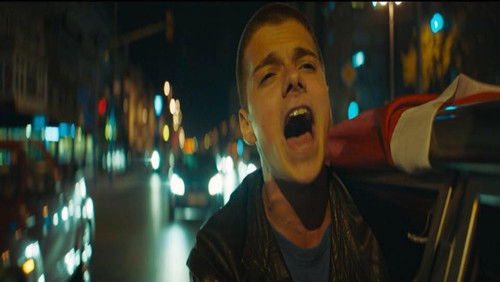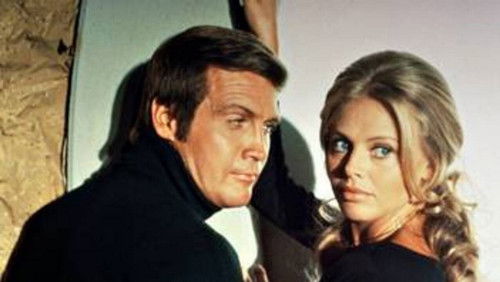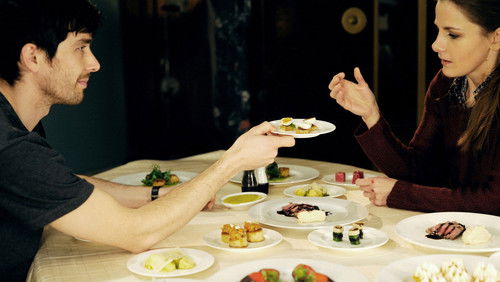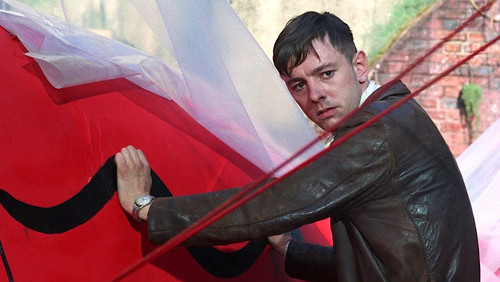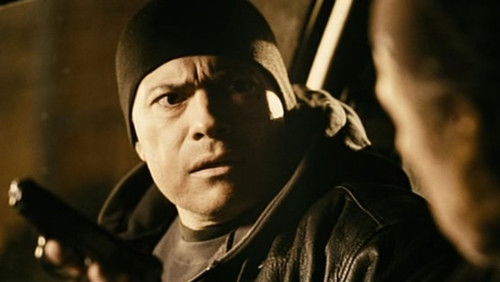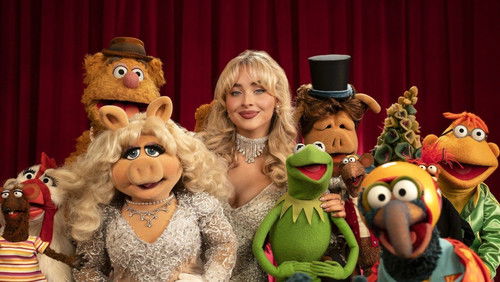Alles Kino (1992)
50KAlles Kino: Directed by Alexandre Rockwell. With Steve Buscemi, Seymour Cassel, Jennifer Beals, Pat Moya. New Yorker Adolpho Rollo is your classic head-movie auteur. In his mind, he’s creating deathless classics of the screen. Back in the real world, he can’t pay the rent on the downtown grothole he calls home.
“In the Soup was a part of the 1992 Sundance selection, one of the various efforts engulfed by the wave of the audacious debuts of Tarantino and Rodriguez, and yet it is the freshly resourceful, deeply personal film that either of them have yet to make even now. It is a comedy about a self-conscious screenwriter named Adolfo, played by the ubiquitous Steve Buscemi, who has written an unfilmable 500-page screenplay and is looking for a producer. Wherever Alexandre Rockwellu0026#39;s career has gone since this much-overlooked flick, there is a great deal of clarity here. As an aspiring filmmaker at the time I see it, I can understand a lot more about Adolfou0026#39;s vision as an aspiring filmmaker than what is actually said. Such a convoluted vision Buscemi has that is relieved and clarified by his experiences.u003cbr/u003eu003cbr/u003eSuch experiences include the appearance of Seymour Casselu0026#39;s Joe, a fast-talking shyster who promises to produce the film but has his own unique ideas regarding film financing. There are so many realistic scenes between an obsessive, complicated artisan and a simple street guy, intensified by the specific external realities of theirs which clash. There is so much more about Adolfou0026#39;s emotional state during his exploits with Joe than what he narrates, u0026quot;Instead of making my movie, I was living in his.u0026quot; Whatever Joe and his intentions may or may not turn out to be, Adolfo now, rather than cloistering in his sketchy NYC apartment synthesizing the styles and thematic elements of his cinema idols, he actually has something personal and profound to say and to write.u003cbr/u003eu003cbr/u003eA low-budget indie feature debut, originally shot in color but released in black and white, it does not play out like an art film. The story is simple, earnest, real. Even when Buscemi narrates and explains in dialogue his ambitious cinematic visions, it is his character who handles this, not the outer film. There are no airs to the dialogue, and many of the peripheral characters are for comic effect. Will Patton seals the deal on Buscemiu0026#39;s interpretation of Joe and his occupation. Stanley Tucci is hilarious as his neighbor Bealsu0026#39; emotional Hispanic husband. And itu0026#39;s refreshingly funny to see Sam Rockwell as a retarded kid with a helmet.u003cbr/u003eu003cbr/u003eReservoir Dogs was an auspicious debut to match, and though El Mariachi hardly compares to the Tarantino filmu0026#39;s writing or star power Rodriguez opened almost as many eyes for its generation to the potential of completely autonomous ultra-shoestring-budget indie film-making as Cassavetes did 35 years earlier. So, I am not partially or rationally surprised that Rockwellu0026#39;s In the Soup was lost under the sudden and violent windstorm phenomenon of those other two simultaneous selections, nor do I think that itu0026#39;s nearly as easy for personal filmmakers to remain consistent with critics and audiences as action filmmakers with more common filmgoersu0026#39; appeal. Nonetheless, this down-to-earth little gem hopefully holds its own over time.”
